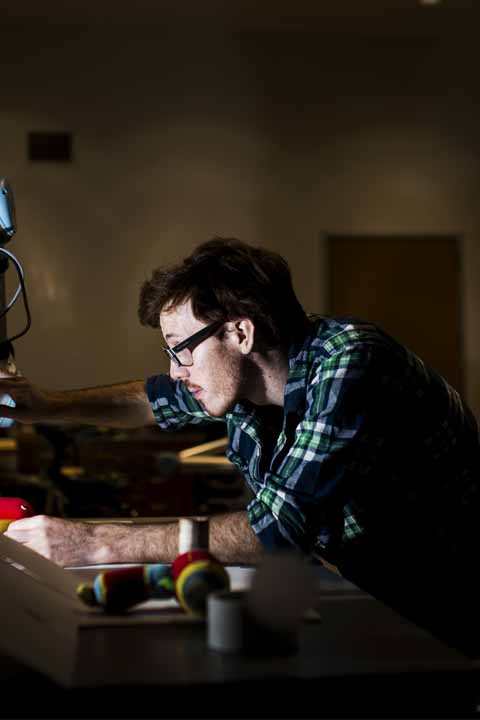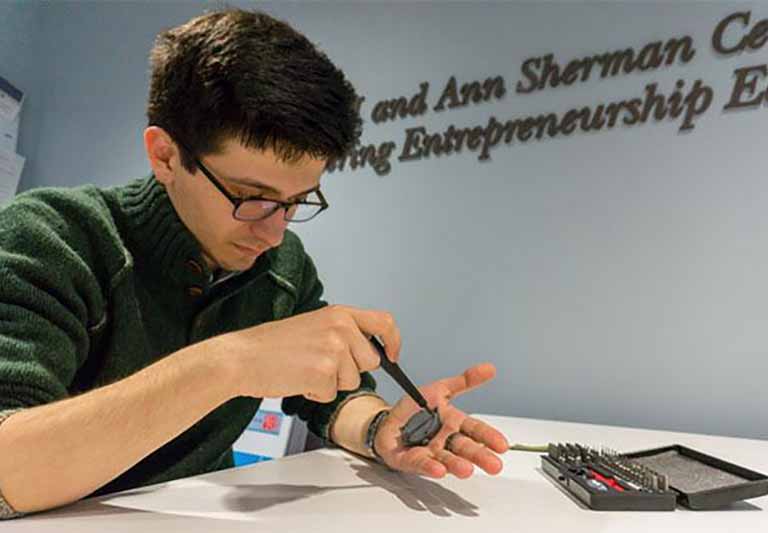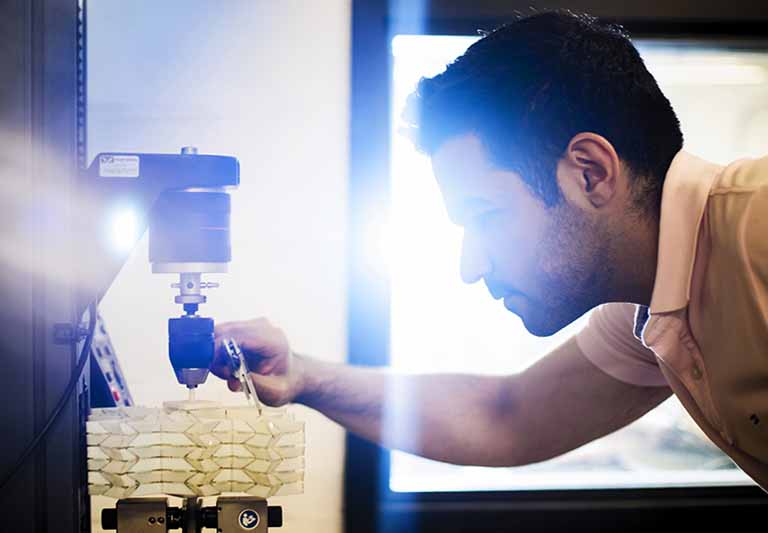
Academics
Offering BS, MS, and PhD Degrees and Graduate Certificates
Comprehensive undergraduate programs are offered in both mechanical engineering and industrial engineering, equipping students with the fundamentals in science, mathematics, and engineering. The programs are optimally blended with theory, computation, and laboratory-level practice, as well as with real-world experience through cooperative education programs aligned with Northeastern University’s mission in experiential learning. Graduates are positioned to excel in careers in broad areas of engineering as well as in academia.
As an R1 research university, research and educational programs are offered for both Master of Science (MS) and Doctor of Philosophy (PhD) students. Our cutting-edge and vibrant doctoral programs include PhDs in industrial engineering, mechanical engineering, and an interdisciplinary PhD (housed in the College of Engineering). Our MS degree programs are offered in both traditional mechanical and industrial engineering, operations research, data analytics engineering, as well as applied programs and concentrations. These extensive programs and concentrations allow for the selection of a degree that meets a wide variety of personal and professional goals. Graduate students work with our world-renowned faculty to achieve research experience and their career goals and have opportunities to participate in the graduate cooperative education program.
What is Mechanical Engineering?
Mechanical engineers design, develop, and support the manufacture of machinery and devices to transmit power or to convert energy from thermal to mechanical form in order to power the modern world and its machines. Traditionally, mechanical engineers have designed and tested devices, such as heating and air-conditioning systems, machine tools, internal combustion engines, and steam power plants. Today, they also play primary roles in the development of new technologies in a variety of fields—energy conversion, solar energy utilization, environmental control, prosthetics, transportation, manufacturing, robotics, and new-materials development.
What is Industrial Engineering?
Industrial engineers design and analyze systems that include people, equipment, and materials and their interactions and performance in the workplace. An industrial engineer collects this information and evaluates alternatives to make decisions that best advance the goals of the enterprise. Industrial engineers work in manufacturing firms, hospitals, banks, public utilities, transportation, government agencies, insurance companies, and construction firms. Among the projects they undertake are design and implementation of a computer-integrated supply chain or manufacturing system, facilities planning for a variety of industries, design of a robotics system in a manufacturing environment, long-range corporate planning, development and implementation of a quality-control system, simulation analyses to improve processes and make operational decisions, design of healthcare operations to enhance patient safety and improve efficiency, productivity, and development of computer systems for information control.


